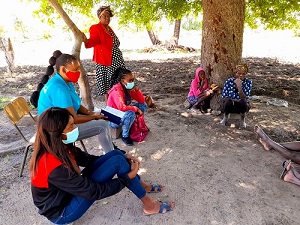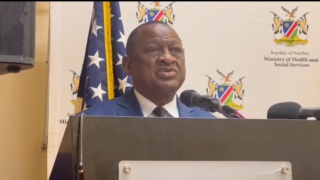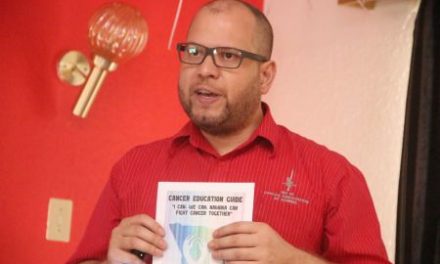
US funded project helps HIV-positive families live decent lives

Ndahafa is one of approximately 8,000 Namibian children living with HIV. She was diagnosed with the virus at the age of four, and since then, has been taking HIV medications known as ART (antiretroviral therapy) at Eudafano Clinic, which is located five kilometres away from her homestead at Omatunda Village in the Ohangwena Region.
A blood test in 2020 showed the girl’s viral load to be very high. This suggested that she was not taking her medicine consistently, or there was some other problem meaning that the virus was not suppressed in her body.
This prompted a community care worker to enrol her in a program for Orphans and Vulnerable Children (OVC) implemented by Project Hope Namibia. This program is funded by the U.S. President’s Emergency Plan for AIDS Relief (PEPFAR) through the United States Agency for International Development (USAID).
Ndahafa’s blood results have since improved. She is now 13 years old and stays with her grandmother and mother, both also HIV-positive, as well as four HIV-negative siblings between two and 12 years of age.
A needs assessment of the household resulted in further activities to support Ndahafa and her relatives. For instance, the whole family survived on the sales of baskets that the grandmother weaved but it did not generate enough income to feed everyone properly. Good nutrition is very important for people who take HIV medication. To address this challenge, the household received food parcels from the project.
The family was also not able to receive social grants from the Ministry of Gender Equality, Poverty Eradication and Social Welfare because they had lost all their legal documents including birth certificates in a fire some years ago.
Project Hope worked tirelessly to connect the family with the Ministry of Home Affairs to get new documents, which means that they are now able to access social grants.
To better navigate the stigma of being HIV-positive, such as verbal abuse, at the age of 13, Ndahafa joined the Teen Club at Eudafano Clinic which Project Hope supports. A Teen Club is a safe place where children can get professional support and share their experiences with peers without fear of retribution or stigmatization, run by the Ministry of Health and Social Services.
Additionally, Ndahafa’s mother was linked to a caregiver group where she was trained in parenting skills and participates in a community-based savings scheme.
Proudly looking at her relatives today, the 60-year-old grandmother Virginia says: “I am thankful for everything Project Hope has done for my family. I had many household members to look after, and I did not have anyone to help me. Ndahafa looks good, she even gained weight. All my grandchildren used to be malnourished in the past, but now they look healthy.”
With the adherence support from the project, Ndahafa’s viral load has significantly reduced. The goal is for the virus to not be detected in her blood and when this happens, HIV cannot be transmitted. The services funded by the American people through the local OVC program will help her achieve this goal and live a healthy long life.
 Project staff with the family and their neighbour who assists the family: Standing is NARP Regional Program Manager Saara Eliphas; NARP District Nurse Alina Haiduwa (red mask); Community Care Worker Tuulikeni; Community Care Worker Nduupewa Joel in black/red jacket; and Ndahafa in a pink hoodie sitting next to her grandmother (polka dots) leaning against the tree. (US Embassy Namibia).
Project staff with the family and their neighbour who assists the family: Standing is NARP Regional Program Manager Saara Eliphas; NARP District Nurse Alina Haiduwa (red mask); Community Care Worker Tuulikeni; Community Care Worker Nduupewa Joel in black/red jacket; and Ndahafa in a pink hoodie sitting next to her grandmother (polka dots) leaning against the tree. (US Embassy Namibia).












































